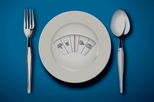It’s no secret that proper sleep is an important part of recovery. It restores and heals the body while providing mindful clarity. Because sobriety requires careful attention in the daily decision-making process, sleep deprivation can undermine the success achieved in rehabilitation. Research has shown that even just one night of sleep loss can result in a decreased ability to effectively make decisions, and that recovering alcoholics with sleep disorders were twice as likely to relapse as those who get a good night’s rest.
Here are 6 strategies to promote healthy sleep patterns while your body and mind continue to heal.
1. Create a regular sleep schedule and stick to it.
The cornerstone to good sleep is regular timing. Wake up at the same time every day, even on weekends. Consistency helps the body’s internal clock stay regulated and is the key to success. A sleep routine will benefit physical and psychological preparedness for sleep. Establish a regular pre-sleep routine (bath, herbal tea, reading a book, etc.). Before you hop under the covers, wind down and relax. Your body needs time to shift into sleep mode.
Avoid the temptation of hitting the snooze button in the morning to get a few extra moments of rest. Experts say post-snooze sleep is not high-quality sleep anyway.
2. Eliminate large meals, caffeine, and nicotine just before bedtime.
Going to bed on a stuffed stomach is detrimental to good sleep. A good rule of thumb is to eat your last meal two to three hours before bedtime. Having dinner around the same time every night will help keep your whole body on track.
Also, limit how much you drink before bedtime to prevent disruptive trips to the bathroom in the middle of the night.
Finally, avoid nicotine, caffeine, and alcohol in the evenings, since those stimulants take hours to wear off. They cause restless sleep and take away from peaceful, rejuvenating sleep patterns. Plus, alcohol robs people of deep, REM (Rapid Eye Movement) sleep and keeps them in the lighter stages, resulting in drowsiness the next morning. So ban these components from your routine at least six hours before bedtime.
3. Remove light, including electronics.
Researchers in the field of sleep have found that artificial light exposure between dusk and the time we go to bed at night suppresses the release of the sleep-promoting hormone melatonin. The exposure to light actually enhances alertness and makes it more difficult to fall asleep.
A poll by the National Sleep Foundation found that 95 percent of people use some type of computer, video game or cell phone at least a few nights a week within one hour before bed.6 These are all activities that keep us awake. Addiction to our electronics is another harmful form of dependence and compulsion.
The particular type of light emanating from the screens of these devices is stimulating to the brain and can disrupt sleep. Therefore, stay away from all artificially lit screens (like televisions, iPads, and iPhones) right before bedtime. Initiate a “digital curfew” when you turn off all electronic devices for the night. Setting the curfew one to two hours before bed is extremely beneficial.
4. Exercise.
Recovering addicts often find exercise a positive outlet that promotes a sleep. The ability of exercise to produce serotonin for a positive mood is similar to the “high” achieved from drugs or alcohol. Serotonin is an important neurotransmitter, a chemical naturally produced by the body. Physical activity causes neurons to fire faster, stimulating the brain to create and release higher levels of serotonin, providing a natural feeling of euphoria.
Engaging in an exercise program will advance a healthy sleep cycle, but avoid exercise just before bedtime. Most experts advise against exercising two to three hours before bed.
5. Arrange your optimal environment.
Set up your room so that it is a calming, sleep-inducing environment. Make sure you have all the essentials such as a comfortable mattress and pillows. Check that the mattress that you are using is in good condition since the average life expectancy for most high-quality mattresses is no more than ten years.
Your bedroom temperature should also be set between a cool 60 and 67 degrees. Studies demonstrate that this is the ideal temperature for sleep. Extreme temperatures may disrupt or prevent you from falling asleep. Too hot or too cold can also affect the quality of rapid eye movement (REM) sleep, which is the necessary restorative stage of sleep with the highest brain activity.
All senses are involved when we sleep, including the sense of smell. If you are recovering from addiction and have difficulty falling asleep, consider adding aromatic touches of lavender as this scent is known to ease anxiety and insomnia.
6. Serenity.
Implement a program that includes mindfulness and self-reflection. In multiple studies, mindfulness has been demonstrated to improve sleep patterns, sleep quality, and sleep duration.[8] Implementing breathing, meditation and imagery techniques to promote sleep provides a natural method to relax the mind and body and obtain serenity.
A Final Thought
Some addicts become so anxious and frustrated with their sleeplessness that they turn to the same substances they are trying to avoid to enhance their sleep. Don’t fall into this trap.
It almost goes without saying, but the one thing you should never do is use drugs and alcohol to "fix" sleep issues. It will sabotage your recovery. No matter how bad your sleeping problems get, you will only be able to return to normal sleep rhythms when all drugs are out permanently of the picture for good.
|
If you or someone you know is seeking help from addiction, please visit our directory of treatment centers or call 800-768-5069 to speak to a treatment specialist. |








